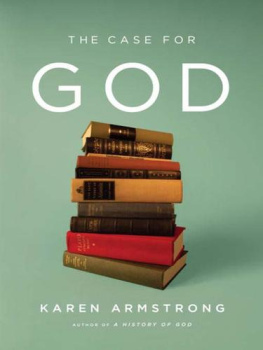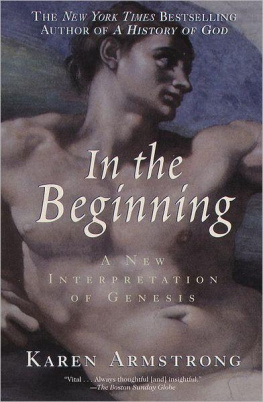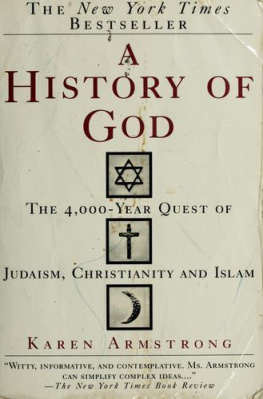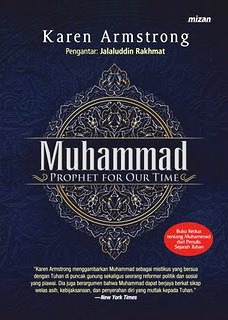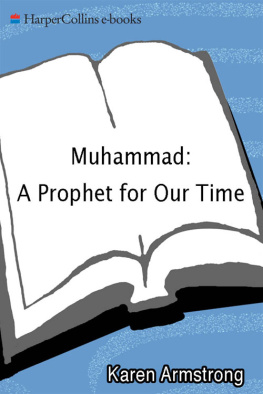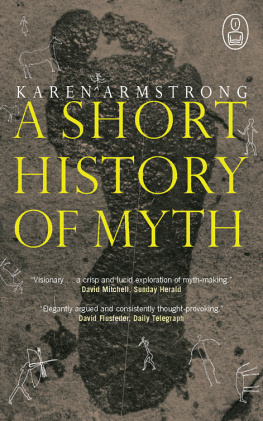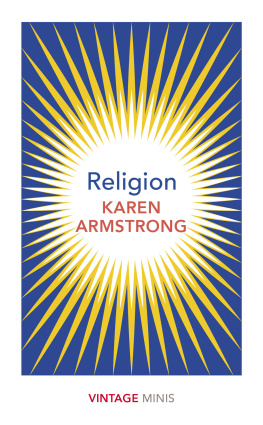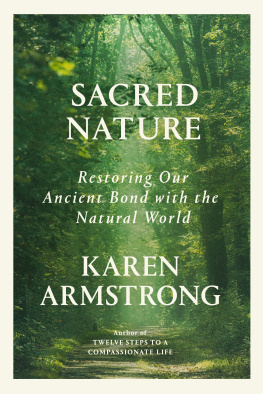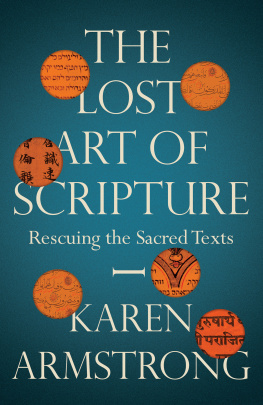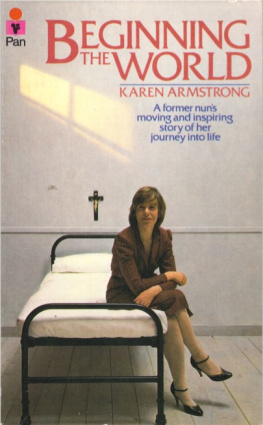ALSO BY KAREN ARMSTRONG Through the Narrow Gate: A Memoir of
Life In and Out of the Convent Beginning the World The First Christian: St. Pauls Impact on
Christianity Tongues of Fire: An Anthology of Religious
and Poetic Experience The Gospel According to Woman: Christianitys
Creation of the Sex War in the West Holy War: The Crusades and Their
Impact on Todays World The English Mystics of the Fourteenth Century Muhammad: A Biography of the Prophet A History of God: The 4,000-Year Quest of Judaism,
Christianity, and Islam Jerusalem: One City, Three Faiths In the Beginning:
A New Interpretation of Genesis The Battle for God Islam: A Short History Buddha: A Penguin Life The Spiral Staircase: My Climb Out of Darkness A Short History of Myth The Great Transformation: The Beginning
of Our Religious Traditions The Bible: A Biography

For Joan Brown Campbell
Contents
PART I
ONE
TWO
THREE
FOUR
FIVE
SIX
PART II
SEVEN
EIGHT
NINE
TEN
ELEVEN
TWELVE
Introduction
W e are talking far too much about God these days, and what we say is often facile. In our democratic society, we think that the concept of God should be easy and that religion ought to be readily accessible to anybody. That book was really hard! readers have told me reproachfully, shaking their heads in faint reproof. Of course it was! I want to reply. It was about God. But many find this puzzling. Surely everybody knows what God is: the Supreme Being, a divine Personality, who created the world and everything in it. They look perplexed if you point out that it is inaccurate to call God the Supreme Being because God is not a being at all, and that we really dont understand what we mean when we say that he is good, wise, or intelligent. People of faith admit in theory that God is utterly transcendent, but they seem sometimes to assume that they know exactly who he is and what he thinks, loves, and expects. We tend to tame and domesticate Gods otherness. We regularly ask God to bless our nation, save our queen, cure our sickness, or give us a fine day for the picnic. We remind God that he has created the world and that we are miserable sinners, as though this may have slipped his mind. Politicians quote God to justify their policies, teachers use him to keep order in the classroom, and terrorists commit atrocities in his name. We beg God to support our side in an election or a war, even though our opponents are, presumably, also Gods children and the object of his love and care.
There is also a tendency to assume that, even though we now live in a totally transformed world and have an entirely different worldview, people have always thought about God in exactly the same way as we do today. But despite our scientific and technological brilliance, our religious thinking is sometimes remarkably undeveloped, even primitive. In some ways the modern God resembles the High God of remote antiquity, a theology that was unanimously either jettisoned or radically reinterpreted because it was found to be inept. Many people in the premodern world went out of their way to show that it was very difficult indeed to speak about God.
Theology is, of course, a very wordy discipline. People have written reams and talked unstoppably about God. But some of the greatest Jewish, Christian, and Muslim theologians made it clear that while it was important to put our ideas about the divine into words, these doctrines were man-made, and therefore were bound to be inadequate. They devised spiritual exercises that deliberately subverted normal patterns of thought and speech to help the faithful understand that the words we use to describe mundane things were simply not suitable for God. He was not good, divine, powerful, or intelligent in any way that we could understand. We could not even say that God existed, because our concept of existence was too limited. Some of the sages preferred to say that God was Nothing because God was not another being. You certainly could not read your scriptures literally, as if they referred to divine facts. To these theologians some of our modern ideas about God would have seemed idolatrous.
It was not just a few radical theologians who took this line. Symbolism came more naturally to people in the premodern world than it does to us today. In medieval Europe, for example, Christians were taught to see the Mass as a symbolic reenactment of Jesuss life, death, and resurrection. The fact that they could not follow the Latin added to its mystique. Much of the Mass was recited by the priest in an undertone, and the solemn silence and liturgical drama, with its music and stylized gestures, put the congregation into a mental space that was separate from ordinary life. Today many are able to own a copy of the Bible or the Quran and have the literacy to read them, but in the past most people had an entirely different relationship with their scriptures. They listened to them, recited piecemeal, often in a foreign language and always in a heightened liturgical context. Preachers instructed them not to understand these texts in a purely literal way and suggested figurative interpretations. In the mystery plays performed annually on the feast of Corpus Christi, medievals felt free to change the biblical stories, add new characters, and transpose them into a modern setting. These stories were not historical in our sense, because they were more than history.
In most premodern cultures, there were two recognized ways of thinking, speaking, and acquiring knowledge. The Greeks called them mythos and logos . Both were essential and neither was considered superior to the other; they were not in conflict but complementary. Each had its own sphere of competence, and it was considered unwise to mix the two. Logos (reason) was the pragmatic mode of thought that enabled people to function effectively in the world. It had, therefore, to correspond accurately to external reality. People have always needed logos to make an efficient weapon, organize their societies, or plan an expedition. Logos was forward-looking, continually on the lookout for new ways of controlling the environment, improving old insights, or inventing something fresh. Logos was essential to the survival of our species. But it had its limitations: it could not assuage human grief or find ultimate meaning in lifes struggles. For that people turned to mythos or myth.
Today we live in a society of scientific logos , and myth has fallen into disrepute. In popular parlance, a myth is something that is not true. But in the past, myth was not self-indulgent fantasy; rather, like logos , it helped people to live effectively in our confusing world, though in a different way. People had to enter the warren of their own minds and fight their personal demons. When Freud and Jung began to chart their scientific search for the soul, they instinctively turned to these ancient myths. A myth was never intended as an accurate account of a historical event; it was something that had in some sense happened once but that also happens all the time .
But a myth would not be effective if people simply believed in it. It was essentially a program of action. It could put you in the correct spiritual or psychological posture, but it was up to you to take the next step and make the truth of the myth a reality in your own life. The only way to assess the value and truth of any myth was to act upon it. The myth of the hero, for example, which takes the same form in nearly all cultural traditions, taught people how to unlock their own heroic potential. Without ritual, myths made no sense and would remain as opaque as a musical score, which is impenetrable to most of us until interpreted instrumentally.

